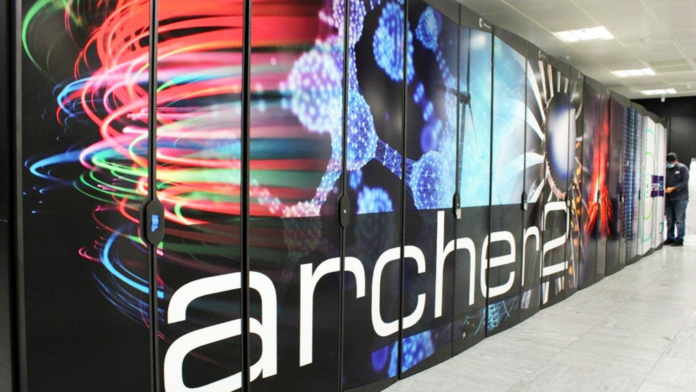Congratulations to Edinburgh for being selected as the host of the next-generation supercomputer in the push for AI safety. This new facility, to be located at the University of Edinburgh, will greatly accelerate research in AI safety, clean energy, and drug development. With funding from the British government, this supercomputer will not only advance scientific discovery but also create new job opportunities in the city.
Background Information
The decision to invest in a next-generation supercomputer in Edinburgh comes as UK experts express concerns about Britain falling behind its international competitors in terms of compute power. The country currently only possesses 1.3% of the global exascale performance and its most powerful system ranks 28th in the world. To address these deficiencies, an independent review on the future of compute recommended immediate investment in next-generation supercomputers and highlighted the importance of these powerful machines for advancing AI research.
Supercomputer to Accelerate Research
The new supercomputer hosted at the University of Edinburgh will greatly enhance research capabilities in various fields. With its exascale computing power, it will significantly speed up research processes related to AI safety, clean energy, and drug development. The increased computational capacity and efficiency offered by this supercomputer will allow researchers to tackle complex problems more effectively and make groundbreaking discoveries.
Power and Capabilities
The upcoming supercomputer in Edinburgh will be 50 times more powerful than ARCHER2, one of the world’s leading supercomputers currently housed in the same city. This immense power will enable researchers to perform complex simulations, analyze vast amounts of data, and develop sophisticated AI models at an unprecedented speed. The supercomputer’s capabilities will be instrumental in solving critical challenges and advancing scientific knowledge in AI and related fields.
Government Funding and Job Creation
The British government has allocated significant funding for the development of this next-generation supercomputer. With an investment of £900 million, the government aims to uplift the UK’s computing capacity and stimulate economic growth. The creation of high-skilled jobs in Edinburgh is one of the key intended outcomes of this investment. As the supercomputer becomes operational, it will require a skilled workforce to manage and utilize its capabilities effectively.
Bristol’s Selection as Host for Isambard-AI
In addition to Edinburgh, Bristol has been chosen as the location for another supercomputer optimized for AI research and development. Known as Isambard-AI, after the renowned engineer Isambard Kingdom Brunel, this supercomputer will further bolster the UK’s computing capacity. The selection of two host cities demonstrates the government’s commitment to addressing the country’s computing deficiencies and promoting innovation in AI.
Addressing UK’s Computing Capacity
The decision to invest in next-generation supercomputers in Edinburgh and Bristol stems from the findings of an independent review on the UK’s computing capacity. The review emphasized the need for immediate action to ramp up the country’s compute capabilities to achieve full exascale performance by 2026. By addressing these deficiencies, the government aims to ensure that the UK remains competitive on the global stage and can effectively support its world-class scientific base and innovative economy.
Recommendations from the Independent Review
The independent review highlighted several key recommendations to address the UK’s computing capacity challenges. In addition to investing in next-generation supercomputers, the report stressed the importance of nurturing a robust computer ecosystem that can cater to the needs of AI researchers and the broader scientific community. The government should provide the necessary support to attract and retain top talent in computing and encourage collaboration between academia, industry, and government bodies. By implementing these recommendations, the UK can strengthen its position as a leader in science, technology, and innovation.
Conclusion
The selection of Edinburgh as the host for the next-generation supercomputer marks a significant milestone in the UK’s push for AI safety and technological advancement. With its immense power and capabilities, the supercomputer will accelerate research in AI safety, clean energy, and drug development. Government funding and job creation in Edinburgh will further stimulate economic growth and promote the development of high-skilled jobs. As the UK strives to address its computing capacity challenges, this investment will ensure that the country remains at the forefront of scientific and technological innovation.












